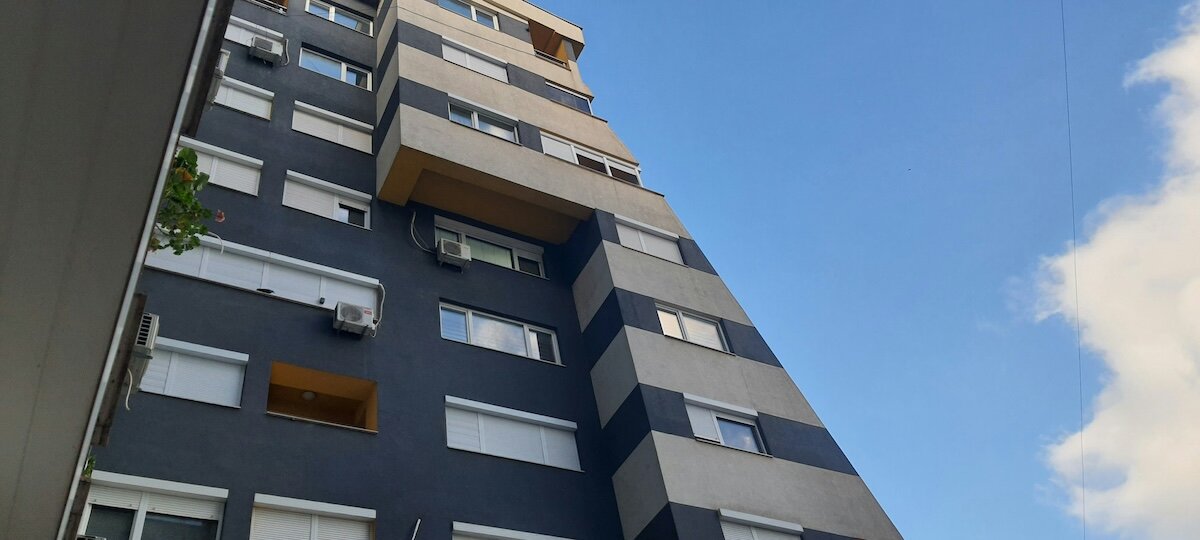How to Think About Commercial Property Management
Learn


Commercial property management is at the heart of every successful commercial real estate investment, going beyond the handling of operational needs to create sustainable, long-term value. Whether you own one office building or oversee a portfolio of industrial spaces, the way a property is managed can significantly influence tenant retention, operating costs, and the overall return on investment.
Effective commercial property management applies big-picture goals to day-to-day operations. It aligns day-to-day operations with big-picture goals, keeps buildings competitive in a changing market, and creates environments where tenants want to stay and grow their businesses.
Here’s how to assess and improve your commercial property management strategy.
What is Commercial Property Management?
Commercial property management refers to the oversight of real estate assets used for business purposes, such as office buildings, retail centers, industrial warehouses, and mixed-use developments. Property managers are responsible for everything from leasing and tenant relations to financial reporting and regulatory compliance.
At its core, property management is about protecting and enhancing the value of the asset. Whether you self-manage or work with a third-party firm, the goal is the same: to operate the property efficiently, maintain its appeal, and ensure it delivers consistent returns.

Core Responsibilities of Commercial Property Managers
A commercial property manager wears many hats, and each of these responsibilities plays a part in protecting income, tenant relationships, and long-term performance.
Leasing and Tenant Management
A big part of the job is keeping the building leased and tenants happy. This includes marketing available space, screening prospective tenants, negotiating lease terms, and ensuring smooth move-ins and move-outs. Ongoing communication, responsiveness to issues, and maintaining positive relationships all play a key role in retention.
Operations and Maintenance
A well-run property requires a proactive approach to upkeep. Property managers develop maintenance plans, oversee vendors, schedule repairs, and ensure the building is safe and functional at all times. They also respond quickly when the unexpected happens - from equipment breakdowns to storm damage.
Financial Management
Property managers handle the numbers, too. That means building budgets, managing operating costs, overseeing capital expenditures, collecting rent, and tracking performance. Transparent financial reporting ensures owners know how their asset is performing and where improvements can be made.
Compliance and Risk Management
Staying compliant with zoning laws, insurance requirements, and safety codes is critical. Property managers also manage lease documentation and help resolve legal issues or disputes that may arise. Risk mitigation goes beyond avoiding problems, ultimately aiming to protect asset value.

Why Commercial Property Management Matters
Good property management is what keeps tenants satisfied, systems running, and owners ahead of costly issues. However, great property management does all of that while also aligning operations with ownership goals and market dynamics to drive long-term value.
- Smart management improves tenant retention by creating positive experiences and reducing costly turnover.
- It runs operations smoother with clear systems and regular upkeep, helping avoid unexpected repairs or service disruptions.
- Effective financial oversight supports healthier net operating income (NOI), which in turn strengthens the property’s valuation.
- Good property management ensures the property stays compliant with local regulations, safety codes, and lease requirements, minimizing legal exposure and reducing risk.
- And in a competitive market, well-managed buildings stand out, attracting high-quality tenants and enabling stronger lease terms.
Great property management doesn’t just preserve value; it actively creates it.
Key Considerations for Owners and Investors
Thinking strategically about property management is essential, especially if you're focused on maximizing returns. Whether you're managing in-house or using a third-party firm, here are a few questions worth asking regularly:
- Does the tenant mix support your investment goals? The right leases can provide stable income or set the stage for repositioning.
- Are operating costs in check? Reviewing contracts, comparing benchmarks, and tracking expenses can uncover hidden savings.
- Is your approach proactive? Regular inspections and a preventative maintenance plan can help you avoid bigger issues down the line.
- Are your systems integrated? Your leasing, accounting, and asset management tools should work together, not in silos.
- Is your management team creating value? A great manager contributes to tenant satisfaction, NOI growth, and long-term asset appreciation.

Trends in Commercial Property Management for 2025
As the commercial real estate landscape evolves, so does the role of property management. Staying one step ahead of shifting trends and expectations is a must, equipping investors to keep their assets competitive, compliant, and profitable.
In 2025, there are several commercial property management trends that are shaping how owners and managers operate their assets:
- Tech-driven efficiency: Software platforms now streamline everything from lease management to tenant communication and remote building monitoring.
- Sustainability focus: Energy-efficient upgrades and green certifications are becoming standard expectations from both tenants and investors.
- Flexible leasing options: Demand is rising for shorter lease terms, amenity-rich spaces, and mixed-use functionality.
- Data-backed decisions: Strong analytics help managers track building performance, improve forecasts, and better manage tenant needs.
- Experience-first management: In a competitive market, top-tier service, strong communication, and community-building efforts make all the difference in tenant retention.

Building Long-Term Value Through Management
Commercial property management is more than a behind-the-scenes operation - it’s a major value driver. From maintaining tenant satisfaction to maximizing NOI and positioning the property for future growth, thoughtful management plays a key role in your investment’s success.
By staying proactive, embracing technology, and aligning operations with your investment goals, you can use property management as a tool to improve long-term returns. Whether you're overseeing a single asset or an entire portfolio, great management sets the foundation for long-term performance in any market cycle.
Interested in staying on top of the latest market data? Add Crexi Intelligence to your investor toolkit and see how your opportunities flourish - because in commercial real estate, information is power.









